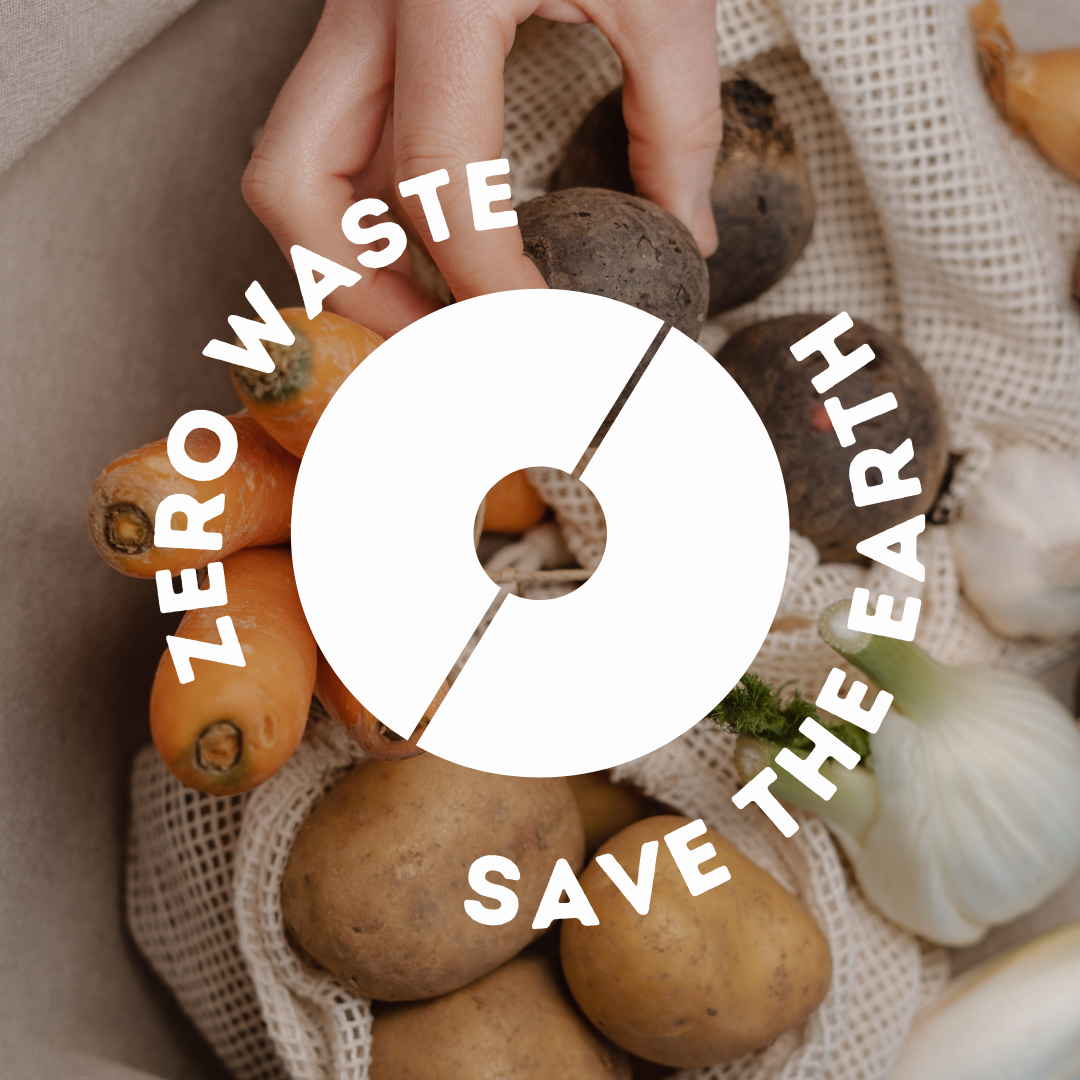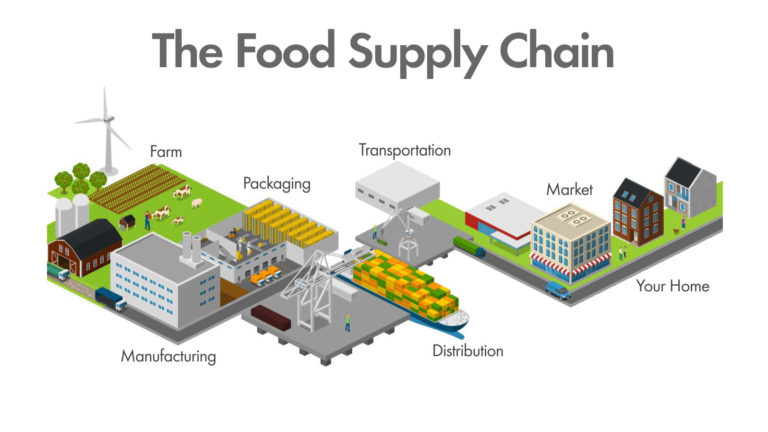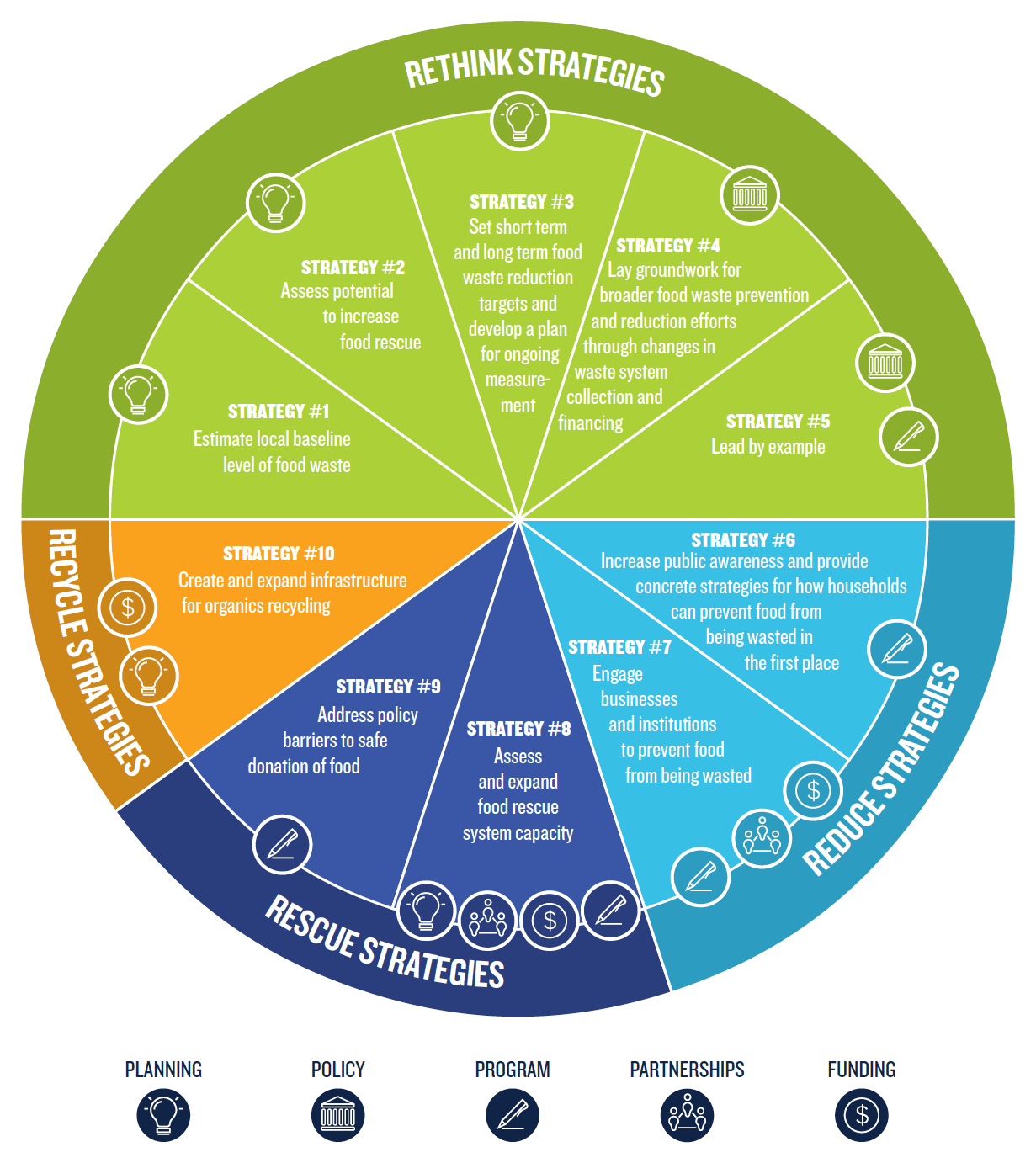Food Waste Prevention
Food waste prevention involves a range of measures to reduce the amount of food waste generated in the first place. This can include implementing better inventory and supply chain management practices, improving food storage and transportation methods, and encouraging consumers to purchase and prepare only the food they need.
This can involve strategies such as better planning and forecasting of food demand, improved storage and transportation methods, and educating individuals and businesses about the importance of reducing food waste.
By preventing food waste, resources such as water, energy, and land can be conserved, greenhouse gas emissions can be reduced, and food can be made more available to those who need it.
Prevention is often the most effective and cost-efficient approach to addressing food waste, as it tackles the root cause of the problem rather than just addressing the symptoms.

Apps & Tools
Food waste apps and tools have the potential to significantly reduce food waste by making it easier for individuals and businesses to track, manage and utilize food more efficiently.
These apps and tools can help consumers plan meals, shop smarter, and use up leftovers, reducing the amount of food that goes to waste in households.
For businesses, these tools can provide real-time data on inventory levels and expiration dates, allowing them to optimize their supply chain and minimize food waste.
Additionally, some apps connect consumers with restaurants and grocery stores that have surplus food, providing a solution for edible food that would otherwise be discarded.
By leveraging technology to streamline food management processes, food waste apps and tools have the power to make a meaningful impact in the fight against food waste.


Food Waste Education
Food waste education is a critical tool for reducing food waste and tackling climate change.
Food waste education can take many forms, including awareness campaigns, workshops, and training programs.
By teaching individuals and educating businesses, and communities about the consequences of food waste, as well as strategies for reducing it, education can change behaviours and encourage more sustainable practices.
Food Waste Policies
Food waste policies from governments and businesses can be a powerful tool for reducing food waste and tackling climate change.
A wide range of policies can be implemented at a national, state or local level.
It can include:
- landfill bans,
- setting up reduction targets for businesses and organizations,
- providing tax incentives for businesses and individuals who adopt good practices
- supporting food recovery and donation programs.

The design employs rooftop solar panels that can generate enough electricity to power the units in all weather conditions | Photo source Cold Hubs
Food Waste Refrigeration
Food waste refrigeration refers to the process of storing excess or leftover food in a refrigerated environment to preserve its freshness and prevent spoilage.
This can include systems for both storage and transport.
Refrigeration is a common method used to reduce food waste as it slows down the growth of bacteria and other microorganisms that cause food to spoil.
Refrigeration is particularly important for perishable foods such as meat, dairy products, and fresh produce. When these foods are not properly stored, they can spoil quickly, leading to food waste.
Food Waste Supply Chain Efficiencies
Addressing food wasted by the supply chain We can help to reduce costs, improve profitability, conserve resources and reduce greenhouse gas emissions associated with food production, transportation, and disposal.
Some strategies include:
Implementing inventory management systems that help reduce overproduction and prevent waste.
Reducing transportation waste by optimizing routes, improving packaging, and reducing food losses during transit.
Improving storage and distribution methods to ensure that food is preserved for longer and does not go to waste.
Creating partnerships and collaborations within the supply chain to improve communication and reduce inefficiencies.
Take Action
Find out more about Food Waste Climateers by browsing this site’s menu.
Then head over to our main Climateers launch site to find out how Food Waste fits within our growing network of hundreds of Climate Solutions.
You can then Join Free today and become a founding member.
We have position vacancies for volunteers and for staff to help grow our network of local Food Waste ecosystems that are collaborating to end Food Waste.
Join FREE today and become a
Founding Member at Climateers.com
Food Waste Climateers is part of the wider global network of Climate Solutions Ecosystems.
By joining our mailing list for free today you can become one of the 10,000 Founding members at Climateers.
You’ll receive lifetime Founding Member benefits including bragging rights of helping to create the Social Tipping Point to help rewrite the end of the Climate Crisis story.


